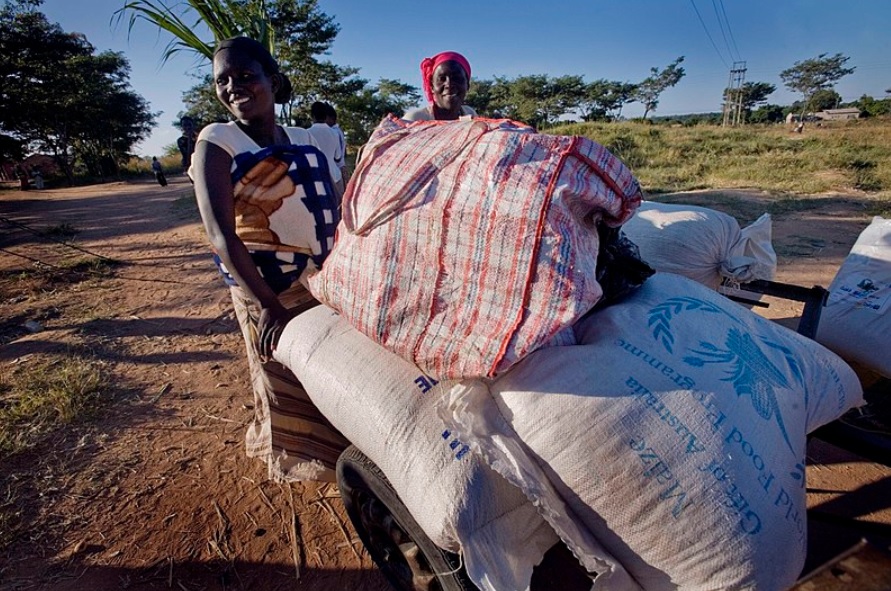Germany Contributes €1M to WFP to Support Refugees and Asylum Seekers in Uganda
“Refugee numbers in Uganda have nearly tripled over the past decade, straining scarce humanitarian resources,” said Abdirahman Meygag, WFP’s Country Director in Uganda.

The United Nations World Food Programme (WFP) has received a €1 million contribution from Germany, through the Federal Foreign Office, to bolster nutrition support and income-generating activities for more than 254,000 refugees and asylum seekers in Uganda. This funding will address immediate food needs for new arrivals and empower less vulnerable refugees to achieve self-reliance through farming and other livelihood initiatives.
“Refugee numbers in Uganda have nearly tripled over the past decade, straining scarce humanitarian resources,” said Abdirahman Meygag, WFP’s Country Director in Uganda. “This funding will help WFP address the immediate needs of new arrivals and promote sustainable livelihoods for those living through protracted crises.”
Rising Refugee Numbers: A Growing Humanitarian Challenge
Uganda, recognized for its progressive refugee policies, hosts 1.7 million refugees and asylum seekers, making it the largest refugee-hosting country in Africa and one of the largest globally. This figure has surged from 600,000 in 2014, reflecting the escalating humanitarian crisis in the region.
The UN Refugee Agency (UNHCR) reports that over 135,000 refugees have entered Uganda since the start of 2024. Many are fleeing conflict, political instability, and climate-related shocks in neighboring countries, including the Democratic Republic of the Congo (DRC), South Sudan, and Sudan. The recent conflict in Sudan has further exacerbated migration flows, stretching Uganda’s resources.
WFP’s Assistance Programs: Balancing Immediate Needs and Long-Term Solutions
WFP supports 1.4 million refugees in Uganda through a tiered food assistance model:
New Arrivals: Refugees receive a full food ration for the first three months to help them stabilize.
Vulnerable Groups: The most vulnerable refugees receive 60 percent of a full ration in cash or in-kind assistance.
Moderately Vulnerable Groups: Those assessed as moderately vulnerable receive 30 percent of a full ration.
In addition to food assistance, WFP is committed to fostering self-reliance among refugees and host communities. The program supports 52,000 individuals—both refugees and Ugandan nationals—with livelihood-strengthening activities such as farming, vocational training, and small business development. These efforts aim to reduce long-term dependency on humanitarian aid and promote integration within host communities.
Germany’s Strategic Contribution
The €1 million contribution from Germany underscores the country’s commitment to global humanitarian aid and sustainable development. This funding will not only address the immediate needs of vulnerable groups but also support sustainable agricultural practices, enhance food security, and empower refugees to rebuild their lives.
Germany has been a consistent partner in supporting Uganda’s refugee response, aligning with global efforts to achieve the United Nations Sustainable Development Goals, particularly Goal 2 (Zero Hunger) and Goal 8 (Decent Work and Economic Growth).
Wider Implications for Uganda and the Region
The increasing refugee population poses significant challenges for Uganda, including pressure on land, water, and public services. However, Uganda’s inclusive policies, such as allowing refugees to work and access education, set a global example of refugee integration.
WFP and its partners are advocating for additional international support to address funding gaps and ensure the long-term sustainability of refugee assistance programs. Efforts are also underway to enhance climate resilience and conflict mitigation in refugee-hosting areas, acknowledging the interconnected challenges driving displacement in the region.
This contribution from Germany marks another step toward meeting the needs of Uganda’s growing refugee population while fostering pathways to independence and dignity for displaced individuals.
- READ MORE ON:
- Uganda
- Germany
- World Food Programme









